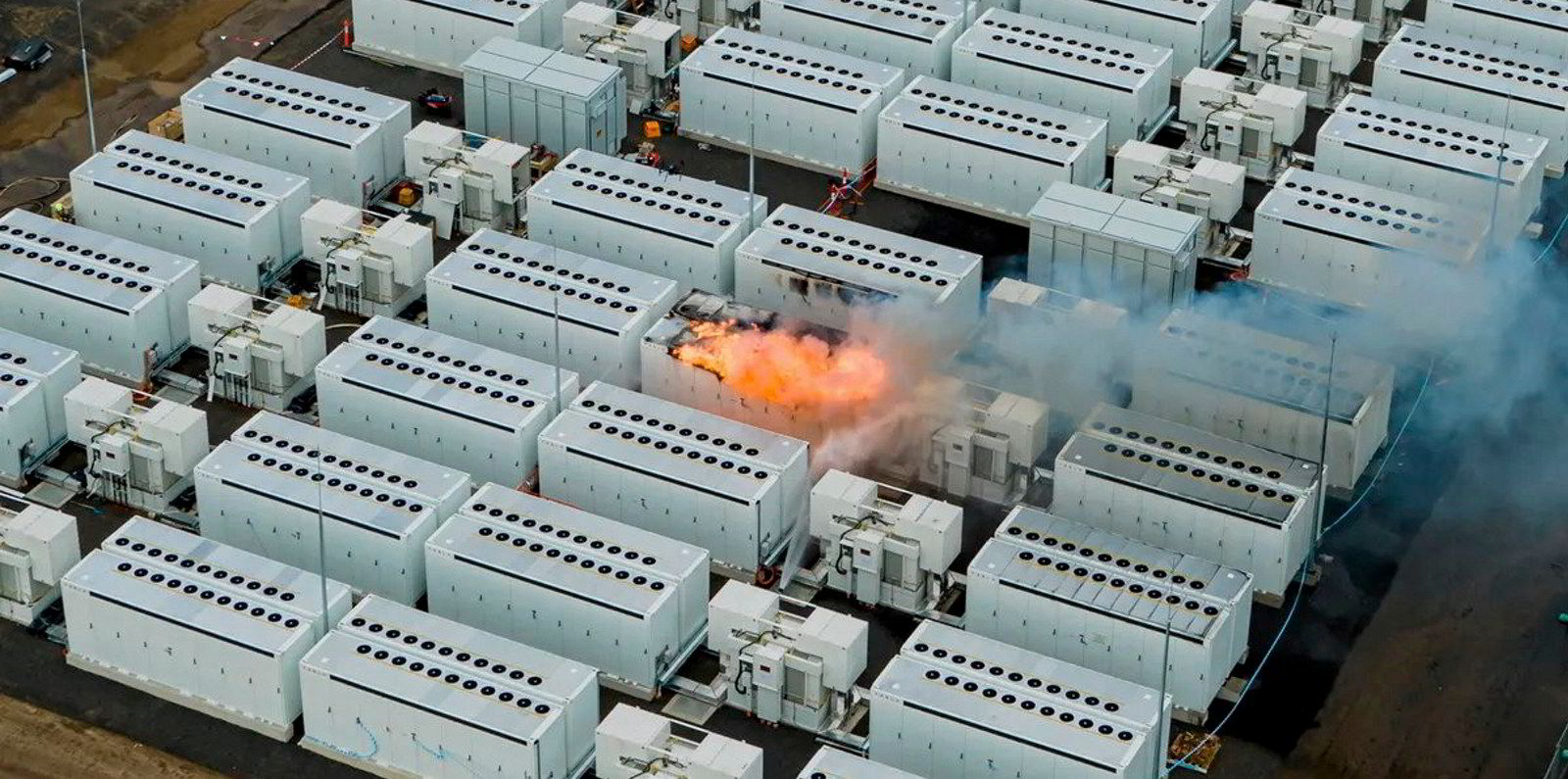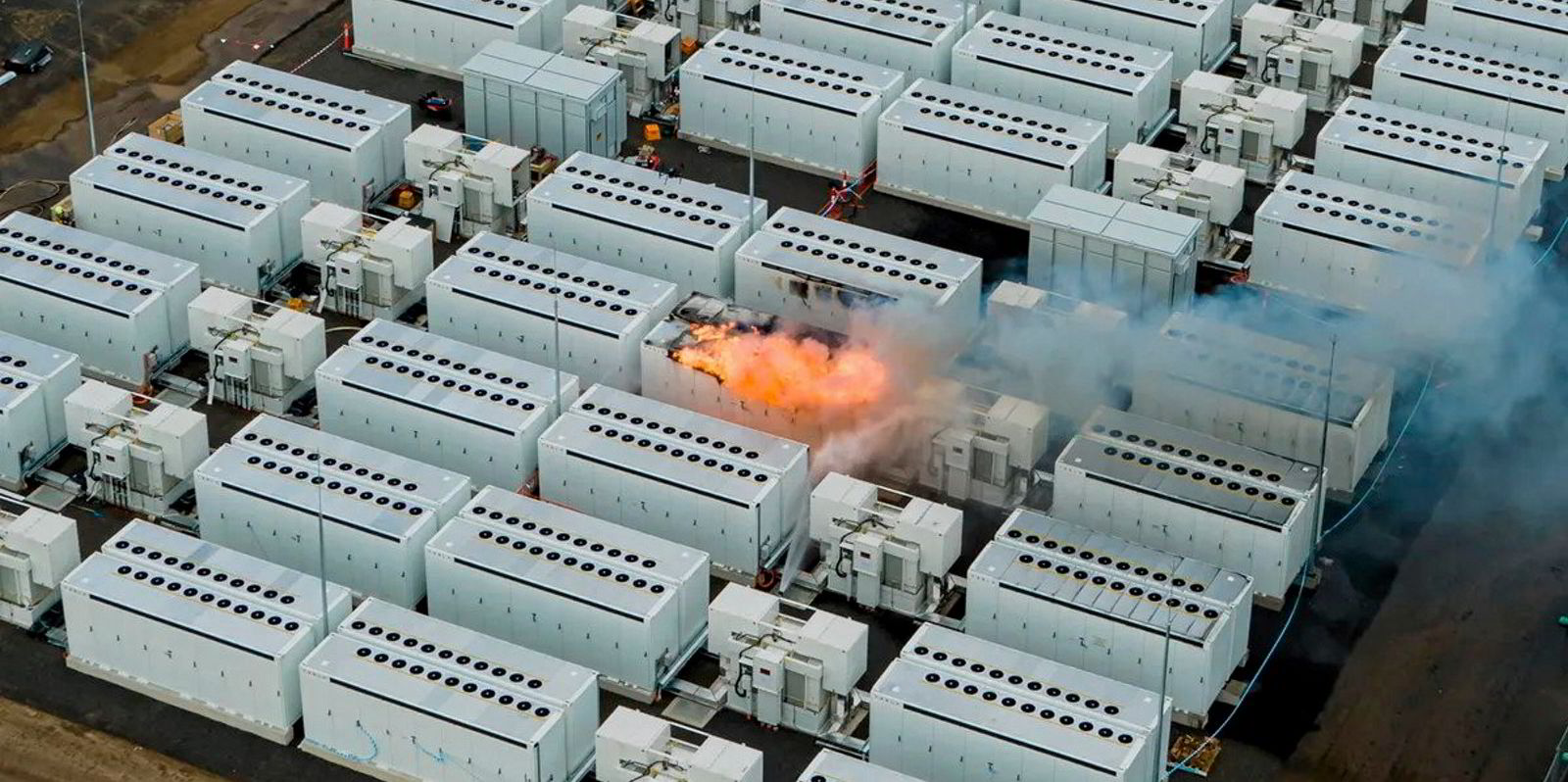A California start-up claiming to have cracked how to produce high-performance lithium-ion batteries while reducing the risk of them bursting into flames has closed its first funding round.
Persistent safety issues with lithium-ion batteries have long cast a shadow over a technology that is key to storing power from intermittent renewable energy sources such as wind and solar.
Fires and explosions are rare but have stoked fears in an increasingly sceptical public who cite safety fears as reasons for pushing back against energy storage facilities, which developers need to build ever closer to urban centres to help them decarbonise.
San Jose-based Anthro Energy has now raised $20m in what it claimed was an oversubscribed Series A funding round to develop a new battery design that it claims can dramatically reduce the risks of safety incidents.
“We have developed a scalable solution to solve the trade-off between energy density and safety in lithium-ion batteries,” said Anthro CEO David Mackanic.
“Developers of electric devices are desperate for ways to package more energy in the same amount of space.”
“Unfortunately,” he said today's solutions to improve energy density, including new battery form factors and new battery chemistries, “require unacceptable compromises in safety”.
Anthro said its “key innovation” is an “advanced non-volatile and mechanically tunable polymer electrolyte”.
This proprietary polymer replaces the “highly flammable liquid electrolyte in conventional lithium-ion batteries,” it said.
Anthro CTO Joe Papp said this allows “new battery form factors and battery chemistries that can facilitate broader electrification efforts across our economy.”
Unlike many other emerging battery technologies, Anthro said its polymer electrolyte can be dropped into any of today’s giga-scale manufacturing lines.
Anthro will use its new funding to expand its team and build a pilot-scale production facility in the San Francisco Bay Area.



